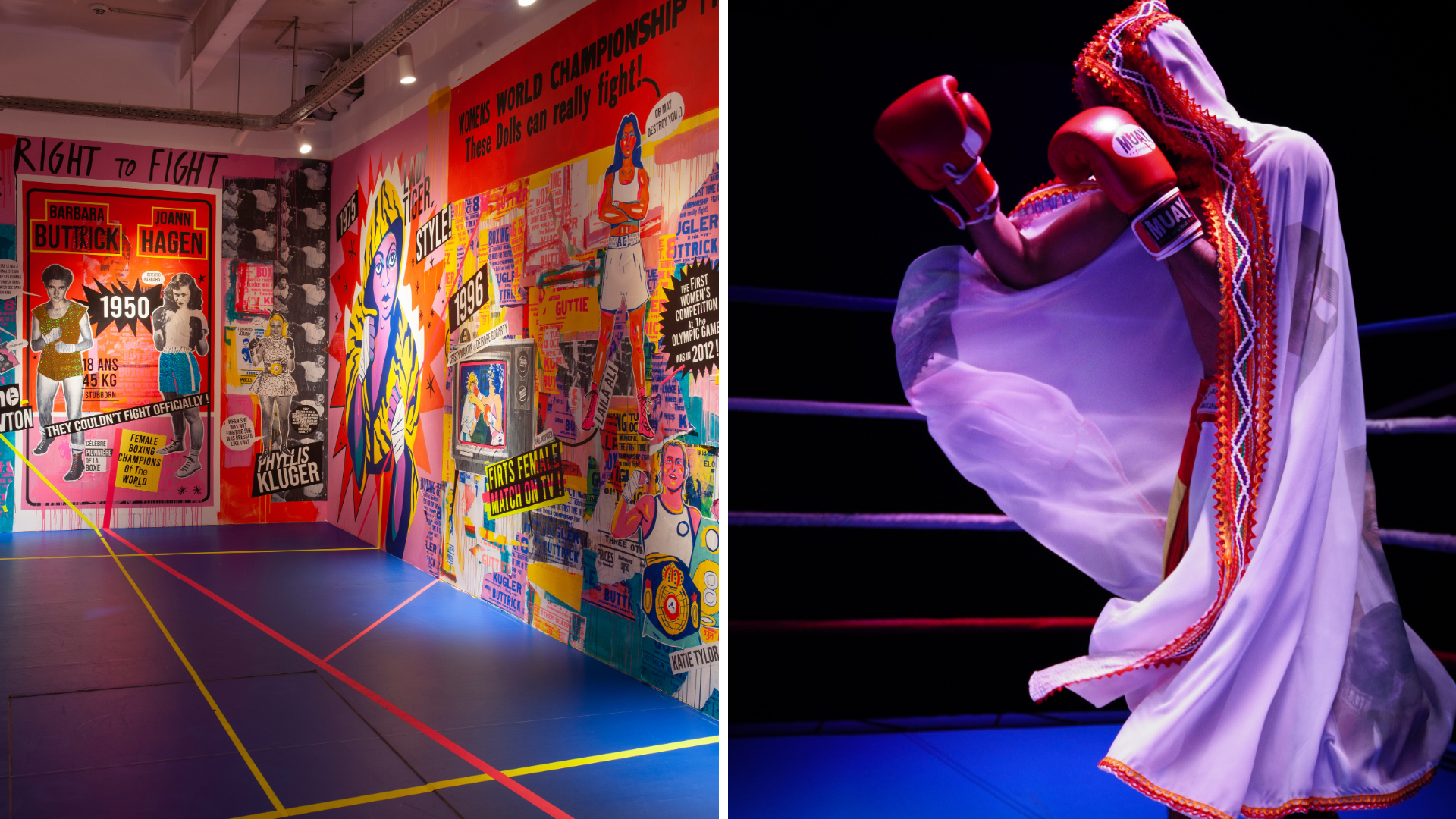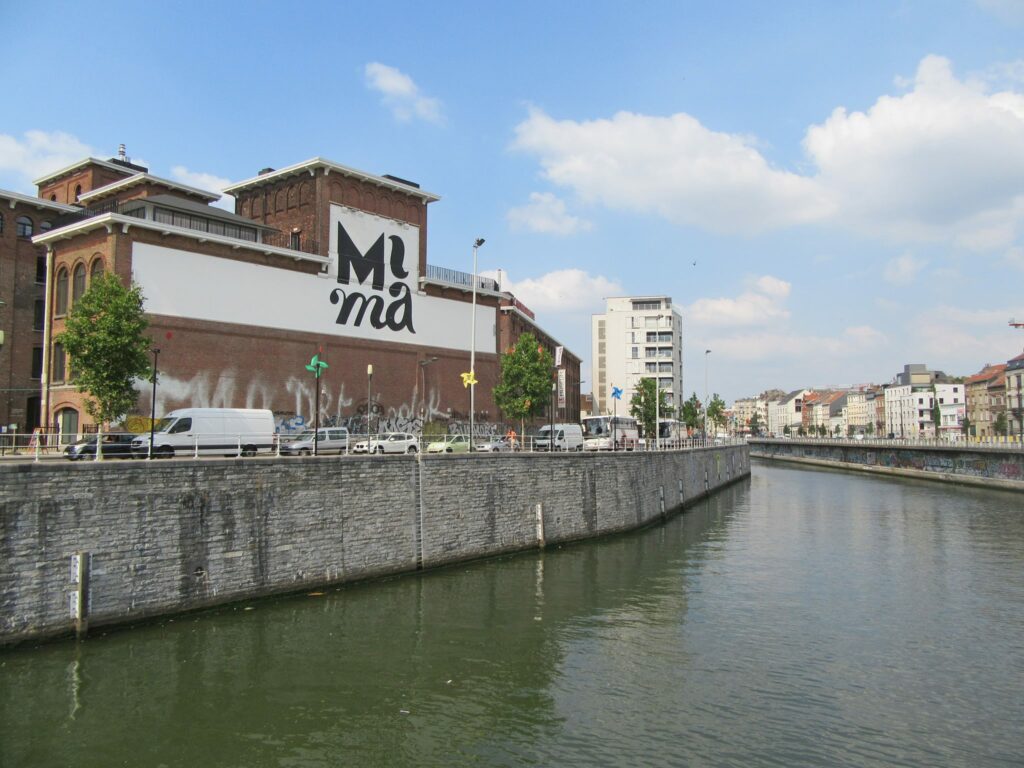The Millennium Iconoclast Museum of Art (MIMA) in Brussels will close its doors on 5 January 2025 "after nine incredible years filled with creativity and thousands of visitors," due to public works disrupting access to the iconic cultural venue.
Located in the heart of Molenbeek-Saint-Jean, MIMA is a modern art venue which sits on the Quai du Hainaut. The quay was closed off in July due to a risk that the road would collapse into the canal, but this has reduced museum attendance by between 50% and 75%. Pedestrian access is still possible but the sharp drop in visitor numbers has proved untenable considering 50% of funding comes from ticketing.
In addition, MIMA holds private events and is unable to keep this offer on the table without providing nearby parking options. It will therefore close for an unspecified amount of time after the end of the current exhibition 'Multitude', an exploration of urban life through immersive videos and art installations by Portuguese artist Alexandre Farto.
"This is a brutal end to ten years of hard work," MIMA co-founder and art director Raphaël Cruyt told The Brussels Times. "We were breaking attendance records and did not expect to end up in this situation. Construction work has made it hard to access the venue so there is a real sense of frustration. The situation is difficult to accept."
Works on the Quai du Hainaut have disrupted business for other establishments too. L'Echo reported that both the Belvue and Meininger hotels have also suffered, with the latter losing €60,000 due to accessibility challenges.
'Emotional' work, 'unique' exhibitions
MIMA opened in 2016 and has since attracted 400,000 visitors to 17 exhibitions. Success peaked with its Jean Jullien exhibition last year, which was viewed by 44,850 people.

'Local Heroes' exhibition in 2023. Credit: Philippe de Gobert / Gina Mercelis
MIMA's official opening was supposed to take place on 22 March 2016 – the day of the Brussels terror attacks which killed 32 people and injured hundreds more. But it was "an emotional time and changed the museum's entire programme," Cruyt said.
Reminiscing over happier times since that difficult beginning, Cruyt highlighted the 2023 project 'Local Heroes', which blended contemporary artwork with live boxing matches between young people from the Molenbeek municipality.
"Local Heroes was a unique exhibition that transformed the museum into a 21st-century Greek theatre," he said. "There was a closeness between the visitors to the museum and the young people in the area [...] we succeeded in bringing together people who would probably never in a million years have dared to look at each other."
Brussels authorities say that the Quai du Hainaut may be repaired within a year and a half, but Cruyt says this is "only if we are really lucky."
"I have no vision for the future, none at all. The current situation has no end in sight and there are certain conclusions you can draw from that."

